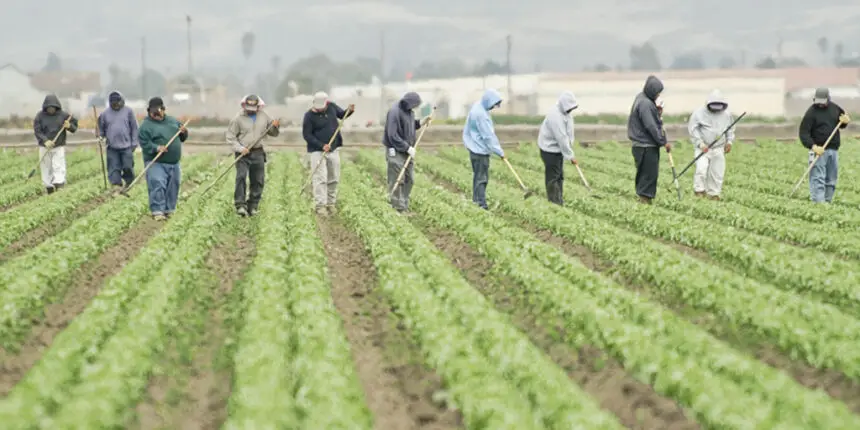Undocumented immigrants in the United States aren’t the only ones living in fear due to President-elect Donald Trump’s promises of mass deportations. American farmers share these fears, but for different reasons.
Donald Trump, re-elected to a second presidential term following his 2024 victory, has raised growing concerns within the American farming and restaurant communities.
According to a recent analysis published by Newsweek, the policy measures announced by President Trump, particularly those related to mass deportations, could have severe economic consequences and destabilize critical sectors dependent on immigrant labor.
American agriculture relies heavily on immigrant workers, a significant portion of whom are undocumented. Among the nation’s 2.2 million farmworkers, approximately 950,000—or 45%—are undocumented immigrants, according to Newsweek.
Dairy farmer Jennifer Tilton Flood voiced her concerns: “The prospect of mass deportations is terrifying and deeply unsettling—not just from a humanitarian perspective but also for our industry. These expulsions could disrupt the entire dairy supply chain across the United States.”
Losing nearly half of the agricultural workforce threatens not only farm profitability but also the stability of the nation’s food supply chain.
Analysts estimate that implementing a mass deportation policy could result in economic losses of up to $315 billion, according to *Newsweek*. The restaurant and agriculture sectors would be particularly hard-hit.
Sam Sanchez, a board member of the National Restaurant Association, explained to *Newsweek*: “Deporting these workers would lead to the closure of many restaurants, causing substantial revenue losses and a significant economic downturn.”
Immigrant workers are essential to the survival of local restaurants and small businesses. Sanchez noted that these individuals, the majority of whom are law-abiding, continued working throughout the pandemic despite being ineligible for government assistance, such as unemployment benefits. “It is crucial to establish policies that allow these indispensable workers to remain in the country and continue contributing to our economy,” he emphasized.
Human and Social Consequences
Beyond economic ramifications, mass deportations could tear apart thousands of families. Jennifer Tilton Flood shared her employees’ worries: “The likelihood of families being separated is significant. Many of my team members are raising American-born children, which makes this situation even more distressing. Anxiety and panic are widespread.”
Religious institutions, schools, and local communities are mobilizing to provide support for families that may be affected by these measures.
Karoline Leavitt, national spokeswoman for the Trump campaign, reaffirmed the president-elect’s intention to intensify deportations: “The Trump administration plans to execute the largest deportation operation targeting illegal criminals, drug traffickers, and smugglers in U.S. history,” she stated.
However, this rhetoric has fostered a climate of fear and uncertainty in communities where many immigrants have lived for decades.
Industries that rely heavily on immigrant labor, already weakened by the COVID-19 pandemic, risk experiencing even more severe labor shortages and increased inflationary pressures.
In agriculture, this could mean unharvested crops and significant financial losses. In the restaurant and service sectors, a reduced workforce could lead to closures and widespread layoffs.
The Need for Reform
In response to these looming threats, community organizations and immigrant advocacy groups are intensifying their efforts to protect vulnerable families. Immigration lawyers are organizing informational sessions and awareness campaigns to help those affected better understand their rights.
In this tense climate, experts and activists are calling for comprehensive and balanced immigration reform. They propose pragmatic solutions that would allow immigrant workers to contribute legally to the economy while safeguarding national security.
Donald Trump’s second term could bring significant upheavals to U.S. immigration policy.
While mass deportations remain a declared priority of his administration, their human and economic consequences could be disastrous.
The agricultural and restaurant sectors—particularly reliant on immigrant labor—could suffer irreversible damage. Meanwhile, millions of families live in fear, hoping for a more compassionate reform that acknowledges their invaluable contributions to American society.
This article is written in French by Emmanuel Paul and translated in English based on a story published by Newsweek. Quotations may differ slightly from the article published in English by Newsweek, which you can consult by clicking on the link below.
Source: Newsweek







